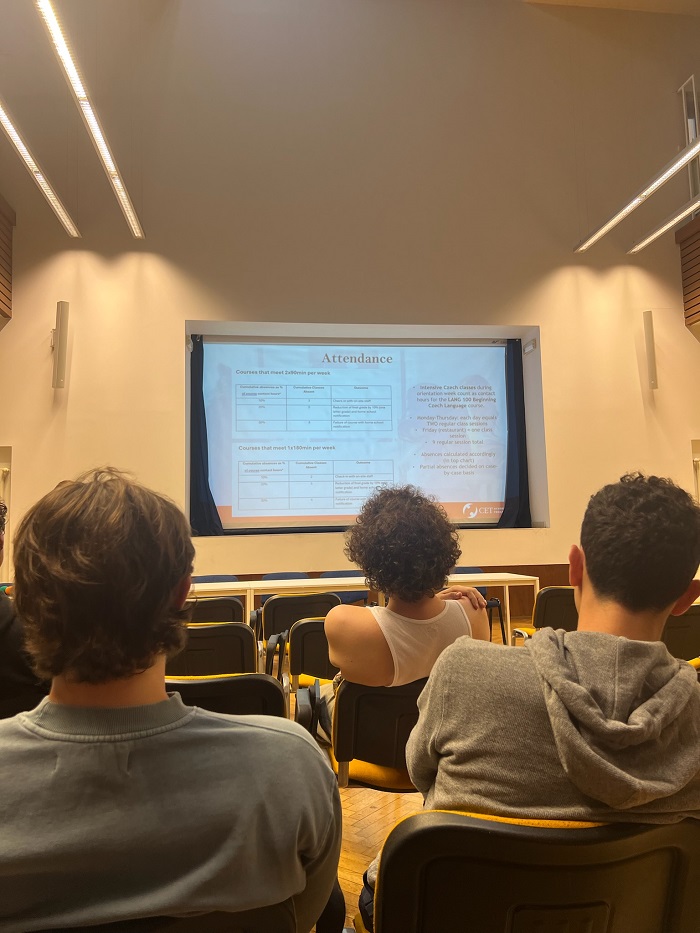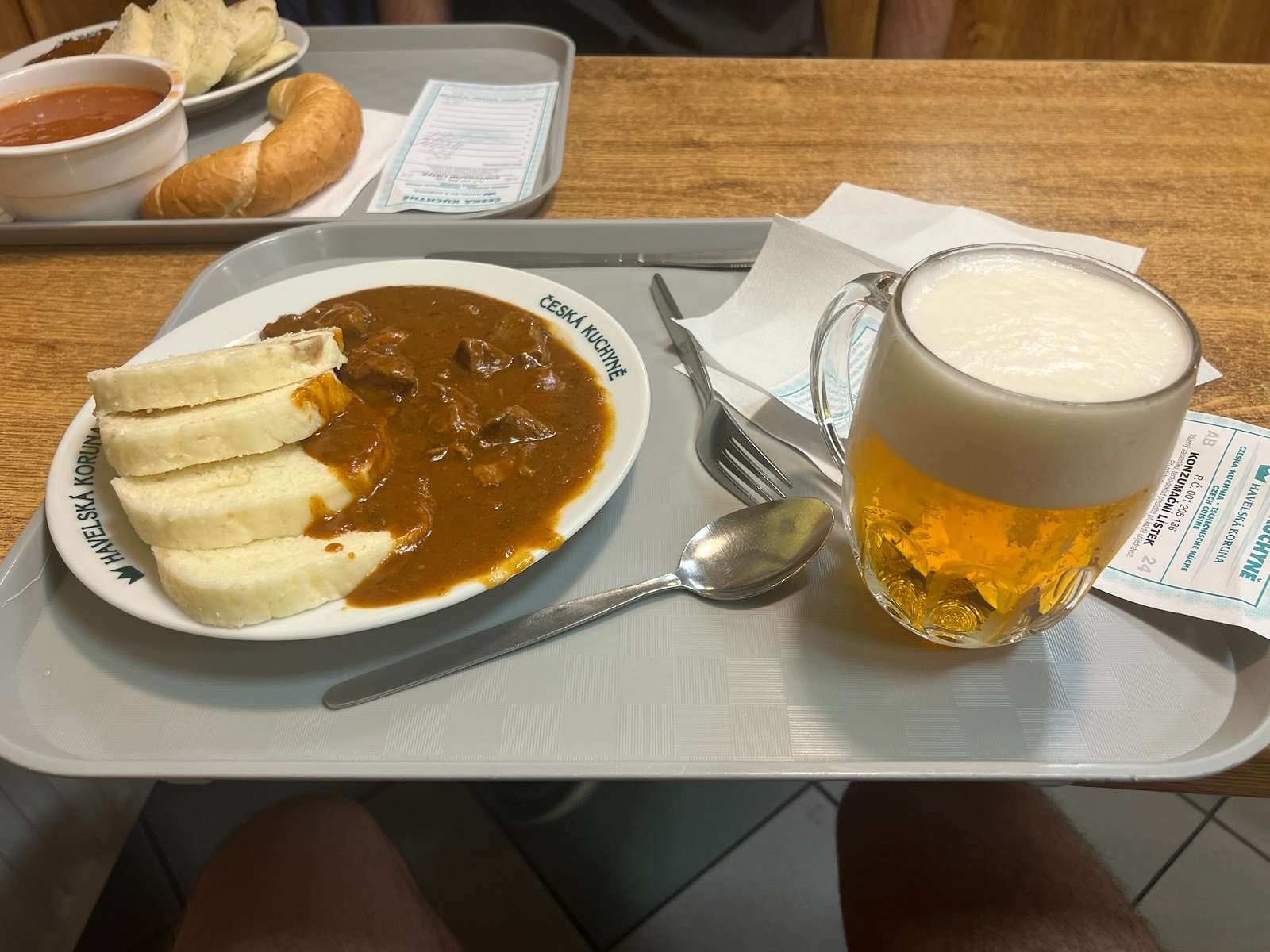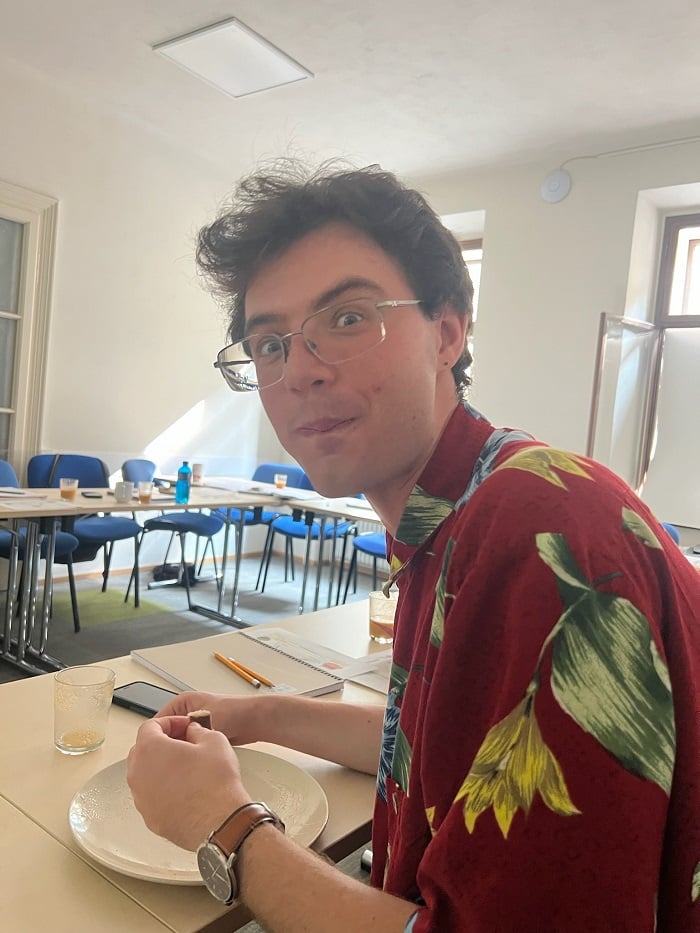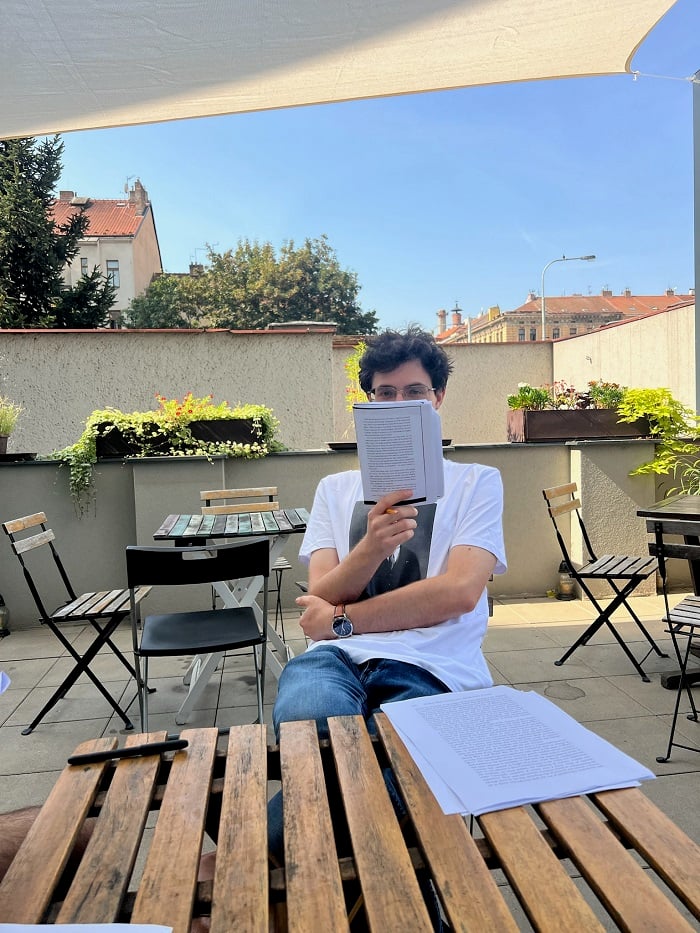Written by Samuel Shafiro, (Emory University), CET Prague, Fall 2024
One thing I was curious about before coming to Prague was what the classes would be like at CET. Academic standards vary wildly both within and between universities, ranging from extremely sympathetic professors with an open approach to deadlines to strict enforcers with exacting standards. I wanted to know: in an institution with students from so many universities and with professors from a different country, what would the academic standards look like?

Professors and Academic Standards in Prague
First, some background on the professors. All of my professors are either Czech or have lived in the Czech Republic for some time. A few of them teach also at Czech universities, but others teach mostly at programs for international students like CET. All of my professors have PhDs, although I know some of the CET classes are taught by graduate students.
Course Offerings at CET
CET Prague offers a variety of courses in a few specific areas like security studies, business and economics, and Central European cultural history. Students not majoring in one of those fields at their home university are likely to take at least one course in Prague in an area they previously had little exposure to. Consequently, professors must teach to classes with a wide variety of experience and must review basic concepts in their field to give all students a fair shot.
To be completely honest, classes here would probably be on the easier side of the classes offered at most American universities. But the academic experience of studying abroad is overall different from school in the States. For one, classes here are scheduled in a way that leaves ample time for exploring Prague. CET activities encourage this as well. This allows students to directly connect their learning to the city around them. Most classes are also somehow related to Prague, the Czech Republic, or cross-cultural interaction. I will illustrate these points by talking specifically about the courses I am taking this semester.
Course Highlights
My first course of the week is about Franz Kafka. We read a short story or part of a book for each class and spend the entire class discussing it. We must write nine short essays and one long essay in response to class readings. At the beginning of the semester we started with Kafka’s Prague-based contemporaries but have now moved on to Kafka’s work. In both cases, reading and discussing work in the place where and about which it was written adds depth to how I experience the literature.
My second course is about Czech food and culture. In my time in Prague so far, I have tried many local delicacies I would probably have missed without the class, like burčak and Olomoc cheese. Though this course still has quizzes and a paper, some parts of it are a bit unconventional by American standards – like the food tasting we do for every class. But those unique components of the course are invaluable and have helped me better understand my host culture.

The Food and Culture class explored a Czech farmers market, exploring local fruits and vegetables.


My third course is about Entrepreneurship in the Czech Republic. The first few classes focused on Czech political and economic history, and we are now discussing contemporary principles of entrepreneurship. We focus on general principles but also apply them to the Czech Republic specifically, including by visiting businesses around us. The course grade consists of short quizzes, a term paper, and a final pitch-style presentation.
My fourth course is my language class. My experience is a little unique because I studied Czech previously. Regardless of your level, though, it is much easier to learn a language when you are surrounded by people who speak that language. Immersing yourself in Czech is not as easy as it seems in Prague since so many people speak English. But if you try speaking Czech to most locals, they appreciate it and are willing to help you learn.

My final course is about Central and Eastern European security. One great strength of this class is simply its subject matter – it covers the specific histories and geopolitics of the countries of Central and Eastern Europe at a level of detail that courses in the US rarely achieve. As a “core course,” this course is also associated with CET programming like a trip to a Czech military airport. This is another example of how our specific location provides a level of academic depth rare for American courses. The grade for this course consists of weekly reading responses, a presentation, a final research paper, and a final quiz.
As you can see, courses here vary in their style and strenuousness. Overall, I would counsel the potential study abroader that classes here are not quite as academically challenging as in America. But if you take advantage of the opportunities to tie your courses to the rich people and culture around you, you will find the courses intellectually stimulating in a way unlike anything you can get in the US. And if you push yourself in your courses, choosing presentation and paper topics that challenge you, you are quite likely to learn about new and interesting topics.